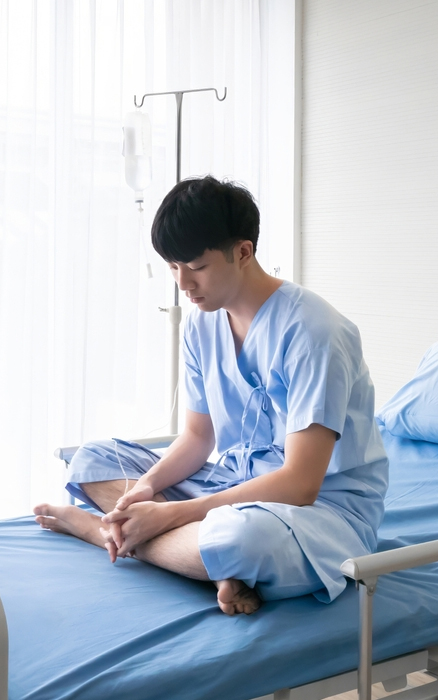-Symptoms-Diagnosis-and-Treatment.jpg)
Obsessive-Compulsive Disorder (OCD): Symptoms, Diagnosis, and Treatment
Obsessive-Compulsive Disorder (OCD) is a mental health condition characterised by the presence of obsessions and/or compulsions. These symptoms cause significant distress and impair social, occupational, or other important areas of functioning. For some individuals, OCD can slow daily routines to the point where completing simple tasks takes hours.
Most people with OCD are aware that their behaviour is unusual or irrational, often feeling embarrassed and attempting to hide it. However, some may lack insight into the irrationality of their actions. OCD is a chronic and often debilitating condition, making early diagnosis and treatment essential.
Symptoms of OCD
OCD symptoms are divided into two main categories: obsessions and compulsions.
1. Obsessions:
- Recurrent, intrusive, and unwanted thoughts, images, or urges that cause significant anxiety or distress.
- Fear of contamination or dirt.
- Extreme concern about symmetry, order, or precision.
- Disturbing sexual or violent thoughts.
- Intrusive thoughts about numbers, words, or sounds.
- Fear of losing or discarding something important.
2. Compulsions:
- Repetitive behaviours or mental acts performed to reduce anxiety or prevent a feared outcome.
- These actions are often excessive and not realistically connected to the issue they aim to address.
- Excessive handwashing, showering, or cleaning.
- Repeatedly checking locks, switches, or appliances.
- Ordering or arranging items in a specific way.
- Counting or repeating words silently. Seeking reassurance from others.


Diagnosis of OCD in the UK
OCD is diagnosed when:
- Obsessions and/or compulsions are time-consuming (e.g., take more than one hour per day).
- Symptoms cause significant distress or impair daily functioning.
- Symptoms are not better explained by another condition (e.g., anxiety, depression).
Treatment Options Based on NICE Guidelines
The National Institute for Health and Care Excellence (NICE) provides evidence-based recommendations for treating OCD. Treatment options include:
- Cognitive Behavioural Therapy (CBT) with Exposure and Response Prevention (ERP): The first-line treatment for OCD. ERP involves gradually exposing individuals to their fears while preventing compulsive behaviours.
- CBT for Children and Adolescents: Tailored to younger patients, often involving family support.
- Selective Serotonin Reuptake Inhibitors (SSRIs): First-line medication for OCD (e.g., fluoxetine, sertraline).
- Tricyclic Antidepressants (TCAs): An alternative for those who do not respond to SSRIs (e.g., clomipramine).
- Medication is typically combined with psychological therapy for moderate to severe OCD.
- For severe OCD, a combination of CBT and medication is often recommended.
- Referral to specialist OCD clinics for intensive treatment if standard therapies are ineffective.
- Guided self-help materials based on CBT principles.
- Support groups for individuals and families affected by OCD.

Take the First Step Toward Recovery
If you or a loved one is struggling with OCD symptoms, don’t wait to seek help. Contact New Healing Solutions Clinic (NHSC) today for an expert assessment and personalised treatment plan. Begin your journey to improved mental health and well-being.
Address
Woodland Drive Medical Centre Woodland Drive Barnsley S70 6QW
Contact NHSC today
+447 123 456 789Send us a Mail
info@newhealingsolutions.co.ukOpening Time
9am to 5pm - Monday to Friday

